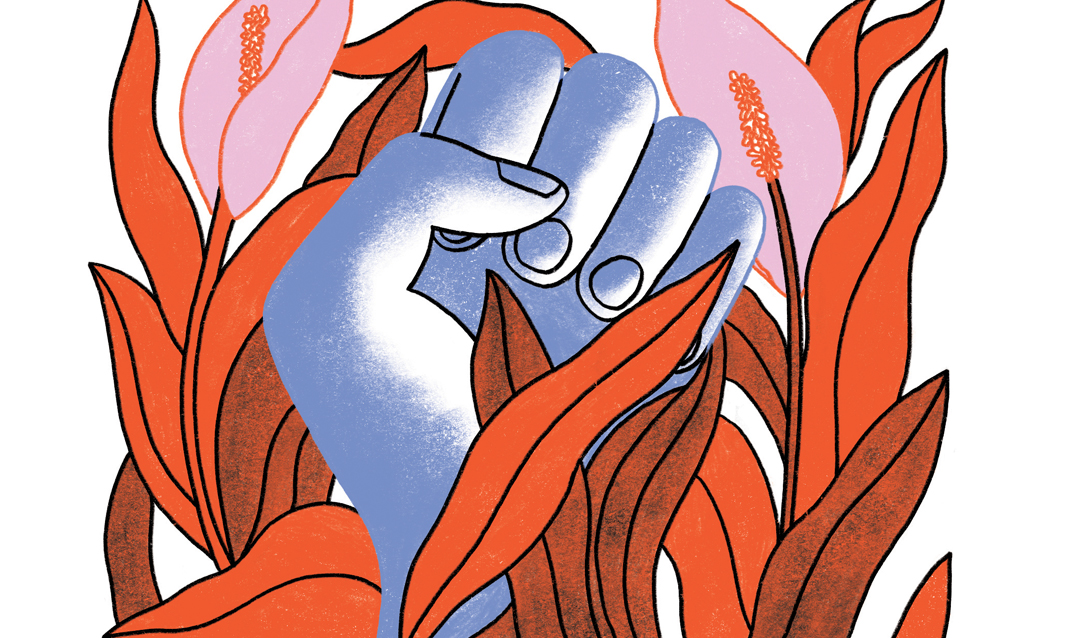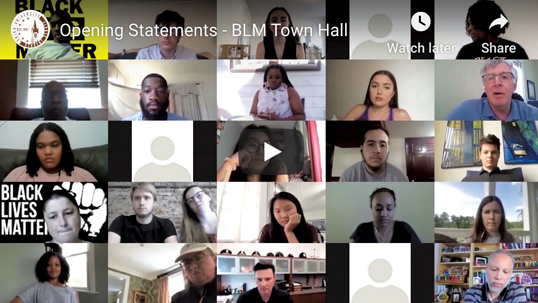“The responsibility for building a just Lehigh rests with its most privileged members—white, high-paid workers—not on employees and students who belong to marginalized racial and ethnic groups,” the open letter stated. “They have done that work for too long. Valuing Black lives means more than penning statements. We demand anti-racist action.”
The open letter also laid bare how systemic racism resulted in the COVID-19 pandemic disproportionately affecting communities of color and low-paid but essential workers.
Also, in early June, the Black Student Union and the Student Senate at Lehigh together hosted a Black Lives Matter Town Hall over Zoom to highlight black student voices and to candidly discuss issues of diversity and inclusivity on campus. Senior leadership joined the virtual town hall to listen to the students’ concerns as well as those of other members of the Lehigh community.
In a written response to the open letter, Simon and Clayton said they recognized that members of the Lehigh community were angry and fearful and that they would support them.
“We know the authors and signers of the letter delivered their message with the measurable purpose to make Lehigh better,” they continued. “We share that goal and thank them for the commitment to our university. We need to make Lehigh University an actively antiracist institution. By this, we mean actively speaking out and addressing acts of racism, racist comments, racist practices, policies and procedures.”
While accepting their responsibility to create the needed change, Simon and Clayton also pointed to the need for broader involvement of the Lehigh community in the difficult conversations and challenging decisions that can lead to sustainable change.
Lehigh planned a comprehensive review of university policies and procedures to ensure they are antiracist and promote equity, including an examination of tenure and promotion, hiring practices, student conduct and student recruitment. As a first step, an independent review began of the Lehigh University Police Department’s policies and operating procedures. In addition, the Provost’s Office was to work with the Faculty Senate to update curriculum and faculty training to promote understanding of implicit biases and other topics, with the involvement of the student leaders of campus cultural groups.
In reaffirming the need to stand together as a community and fight against systemic discrimination and racial disparities, Lehigh also formed the Community Conversations About Race (CCAR) team. Donald Outing, Lehigh’s vice president for equity and community and the diversity and inclusion officer, said CCAR will hold monthly discussions on race-related learning that is open to the Lehigh community as well as the larger Lehigh Valley community.
The Council for Equity and Community (CEC), an independent advisory board formed in 2008 and made up of staff, faculty and students, also encourages constructive dialogue and works toward building a stronger campus community.
“The racist actions and attitudes experienced by students and others in our community are unacceptable to us,” the Lehigh trustees wrote to the Lehigh Black Student Union. “Despite our past efforts and actions, we have much more to do to address such behavior We pledge to do more and to do better.”
Hear more voices from around Lehigh as they react to George Floyd’s killing. Go to go.lehigh.edu/racialinjustice.






